World Water Day 2022
Groundwater: how BGS is helping to make the invisible visible
22/03/2022 By BGS Press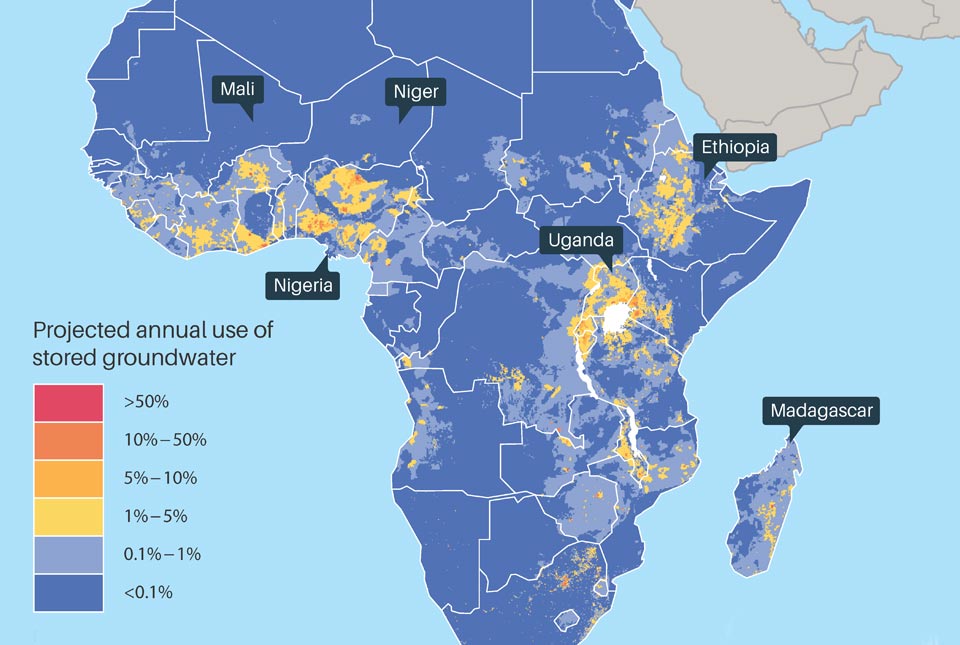
As World Water Day 2022 turns the spotlight to groundwater, we take a look at the work being carried out by our international groundwater team, helping to inspire action towards safe water for billions of people around the world.
Out of sight and under our feet, in gaps within soil, sand and rock, groundwater is invisible. But its impact is everywhere, keeping rivers flowing in summer and providing safe water for millions. In the driest parts of the world, it may be the only water people have access to. Almost all (more than 97 per cent) of the unfrozen, fresh water in the world is groundwater and nearly half the world’s population relies on groundwater for drinking water.
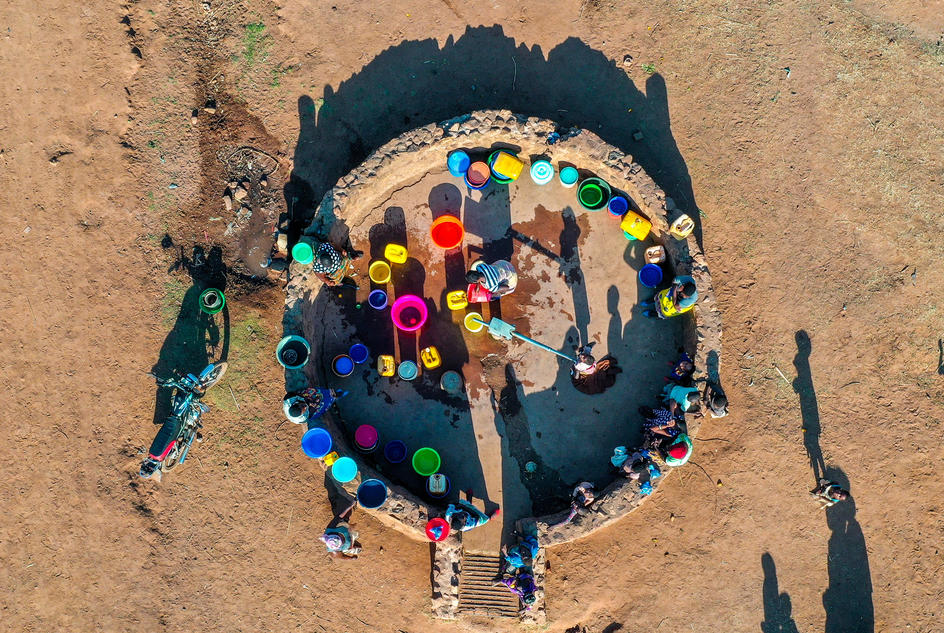
Aerial view of women and children filling buckets and waiting for their turn at a borehole in Malawi. BGS has recently collaborated with WaterAid on a new report highlighting the potential for groundwater to provide resilience to drought in many African countries. © WaterAid.
Climate change, increasing droughts and irregular rainfall continue to pile pressure on water supplies for people in many communities. Groundwater is nature’s water reservoir and has great potential to help people adapt to climate change but, like any natural resource, it needs to be carefully managed.
In some places, agricultural and economic needs and human activities lead to the overuse and pollution of groundwater. In other areas, we simply do not know how much groundwater is available, let alone how sustainable these supplies might be in future. We need to work together to sustainably manage this precious resource.
World Water Day is held each year on 22 March. Organised by the United Nations (UN), the event raises awareness of the two billion people currently living without safe access to water, and aims to promote action towards the UN’s Sustainable Development Goal (SDG) 6: water and sanitation for all by 2030. This year, the theme is groundwater.
We have 50 groundwater scientists working on projects in the UK and 20 countries worldwide, mostly in Africa and Asia. We work with partners to understand how groundwater can be developed and managed to sustainably increase water security, reduce environmental damage and help meet the SDGs.
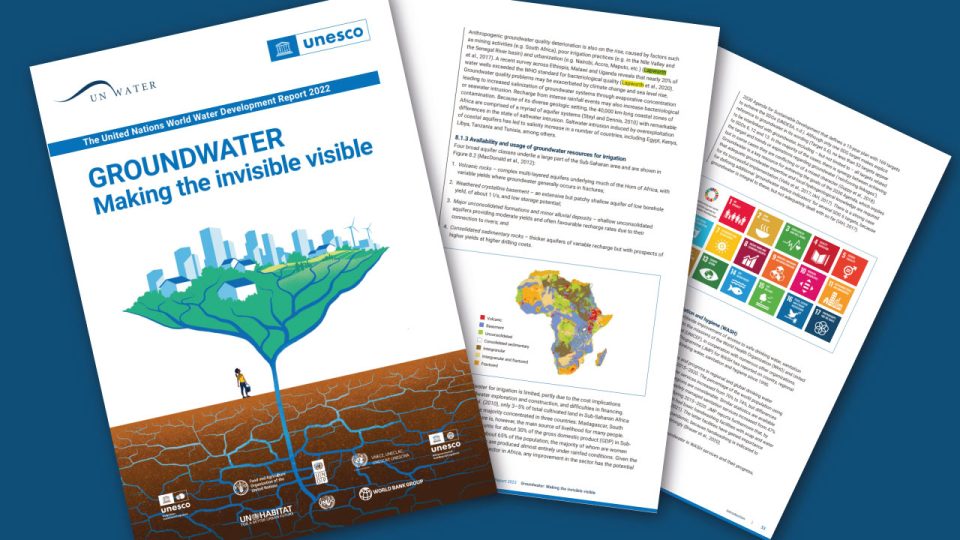
BGS scientists have contributed to the official 2022 UN World Water Development Report for 2022 Groundwater: making the invisible visible. © UN-Water.
For example, BGS’s international groundwater team has been developing quantitative groundwater maps for Africa with our partners for the last 10 years, first developing maps of groundwater storage and the type of yield that might be achieved from drilling in different places. More recently, we published a map to show the long-term renewability and a dataset on the quality of that groundwater and how it is linked to rainfall and climate change.
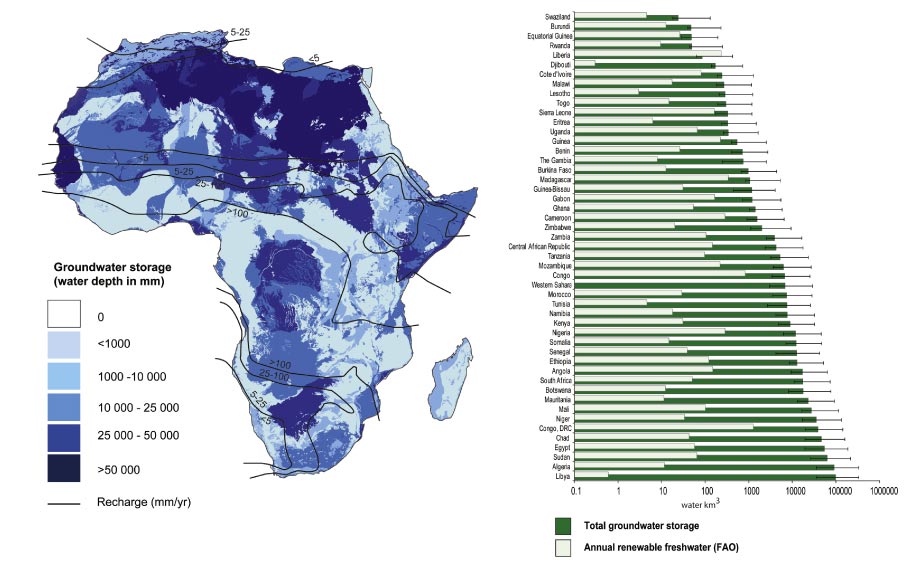
Map produced by BGS showing groundwater storage for Africa based on the effective porosity and saturated aquifer thickness. From MacDonald et al., 2012.
In the UK, groundwater forms an important component of water supply, providing over 75 per cent of public water supply in the south-east and approximately a third overall in England and Wales. BGS continues to support the work of the environment regulators, the water supply industry and other Government and private organisations in managing groundwater. For example, we are currently working with the Environment Agency in England to review the recent science on climate change and its impact on groundwater and the environment, and we are developing infrastructure across the UK to monitor the impacts of the increasing risk of groundwater-related floods and droughts.
For World Water Day 2022, BGS scientists Prof Alan MacDonald and Dr Daniel Lapworth have contributed to the official UN World Water Development Report, a flagship report released by UN-Water, which this year aims to provide an authoritative, comprehensive assessment of the world’s groundwater resources.
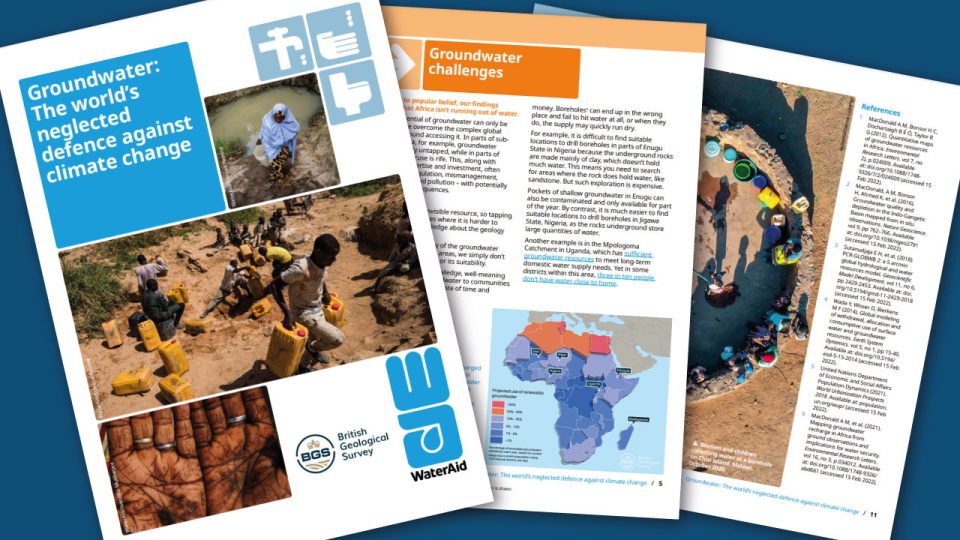
‘Groundwater: the world’s neglected defence against climate change’ is a new report released by WaterAid in collaboration with BGS, which has revealed that most African countries have enough groundwater reserves to face at least five years of drought. © BGS and WaterAid.
BGS has collaborated with WaterAid to produce a new report Groundwater: the world’s neglected defence against climate change, which examines more closely and at a national scale whether there is potentially enough groundwater in future to sustainably supply populations in Africa with a certain amount of water (130 litres) per day.
Experts from our international groundwater group are supporting the Foreign, Commonwealth and Development Office (FCDO) in briefing key diplomats about the importance of protecting and managing groundwater resources.


A tale of two groundwaters: Alan MacDonald explains what groundwater is and how the story of groundwater has played out in Africa and in Asia. Source: K4D.
Further contributions by our BGS international groundwater team include:
- A new Economic Community of West African States groundwater map, to be launched at the World Water Forum in Dakar, 22 – 27 March 2022
- The White Paper on Groundwater for Africa’s Socio-economic Transformation from the African Ministers’ Council on Water, to be released and discussed at World Water Forum in Dakar
- A BGS exhibition on groundwater at the Scottish Government World Water Day event in Dynamic Earth, Edinburgh
- The publication of a new book, Groundwater for Sustainable Livelihoods and Equitable Growth, featuring BGS authors, will follow World Water Day, set to be released on 31 March 2022
Relative topics
Related news

Quaternary UK offshore data digitised for the first time
21/01/2026
The offshore wind industry will be boosted by the digitisation of a dataset showing the Quaternary geology at the seabed and the UK’s shallow subsurface.

Suite of ten new soil reference materials released
02/01/2026
BGS has a longstanding track record of producing high-quality reference materials and has released ten new soil reference materials.

Perth and Kinross tops the UK’s earthquake activity charts for 2025
29/12/2025
Seismologists at BGS have published data on the number of seismic events over the past 12 months with over 300 earthquakes recorded.

BGS awarded funding to support Malaysia’s climate resilience plan
17/12/2025
The project, funded by the Foreign, Commonwealth & Development Office, will focus on minimising economic and social impacts from rainfall-induced landslides.
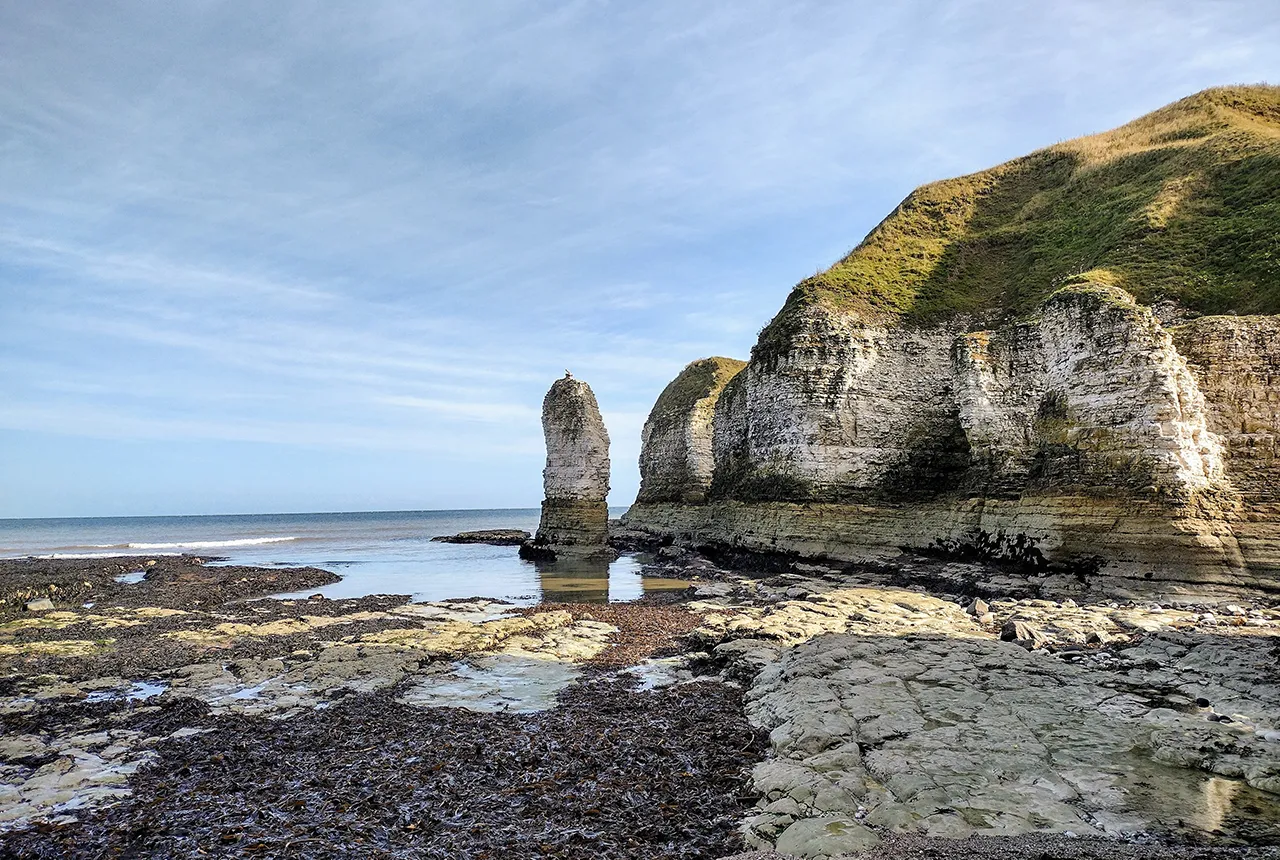
New geological maps of the Yorkshire Wolds to better inform groundwater management and policy decisions
17/12/2025
The new mapping provides crucial data on localised geological issues that may assist in protecting water supplies.
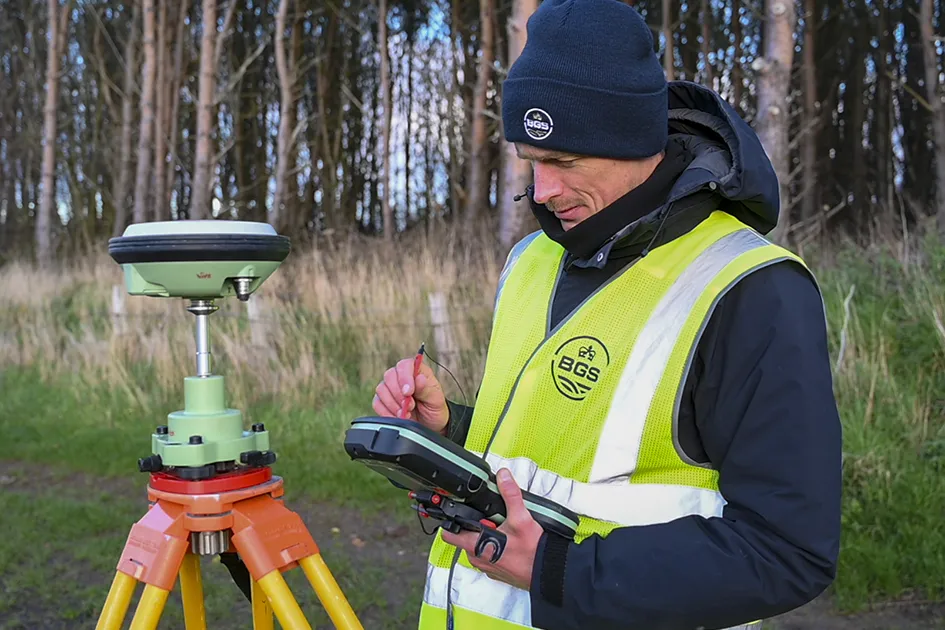
‘Three norths’ set to leave England and not return for hundreds of years
12/12/2025
The historic alignment of true, magnetic, and grid north is set to leave England, three years after they combined in the country for the first time since records began.
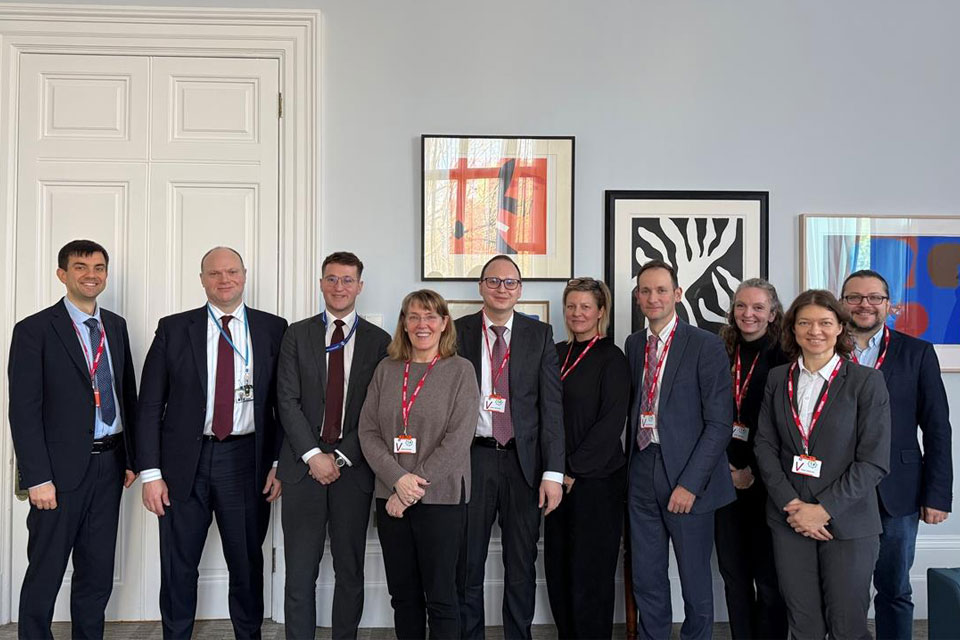
BGS agrees to establish collaboration framework with Ukrainian government
11/12/2025
The partnership will focus on joint research and data exchange opportunities with Ukrainian colleagues.

Making research matter: BGS joins leading research organisations in new national initiative
10/12/2025
A new alliance of 35 organisations has been formed that is dedicated to advancing science for the benefit of people, communities, the economy and national priorities.

New 3D model to help mitigate groundwater flooding
08/12/2025
BGS has released a 3D geological model of Gateshead to enhance understanding of groundwater and improve the response to flooding.
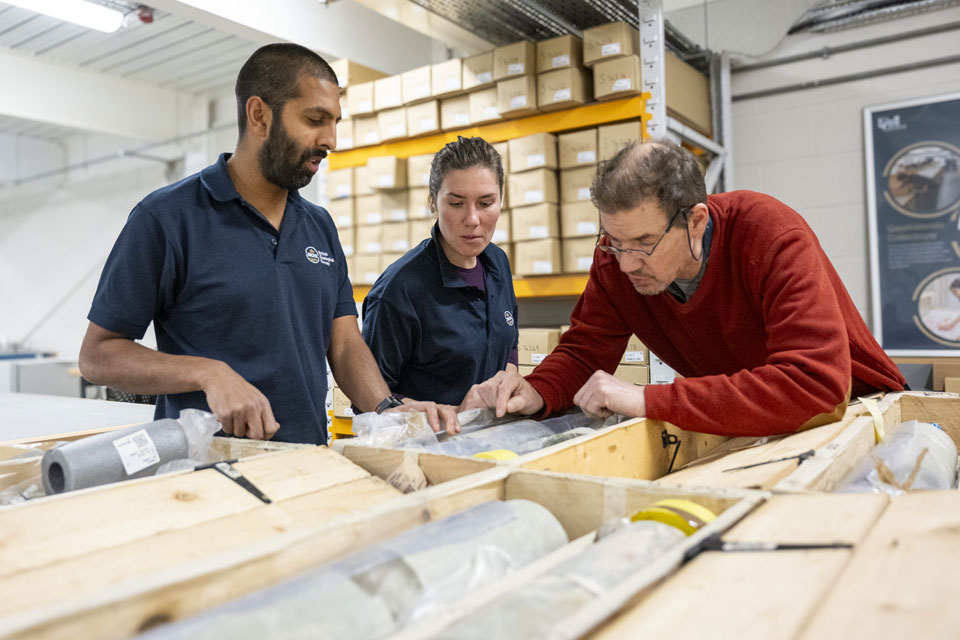
Scientists gain access to ‘once in a lifetime’ core from Great Glen Fault
01/12/2025
The geological core provides a cross-section through the UK’s largest fault zone, offering a rare insight into the formation of the Scottish Highlands.
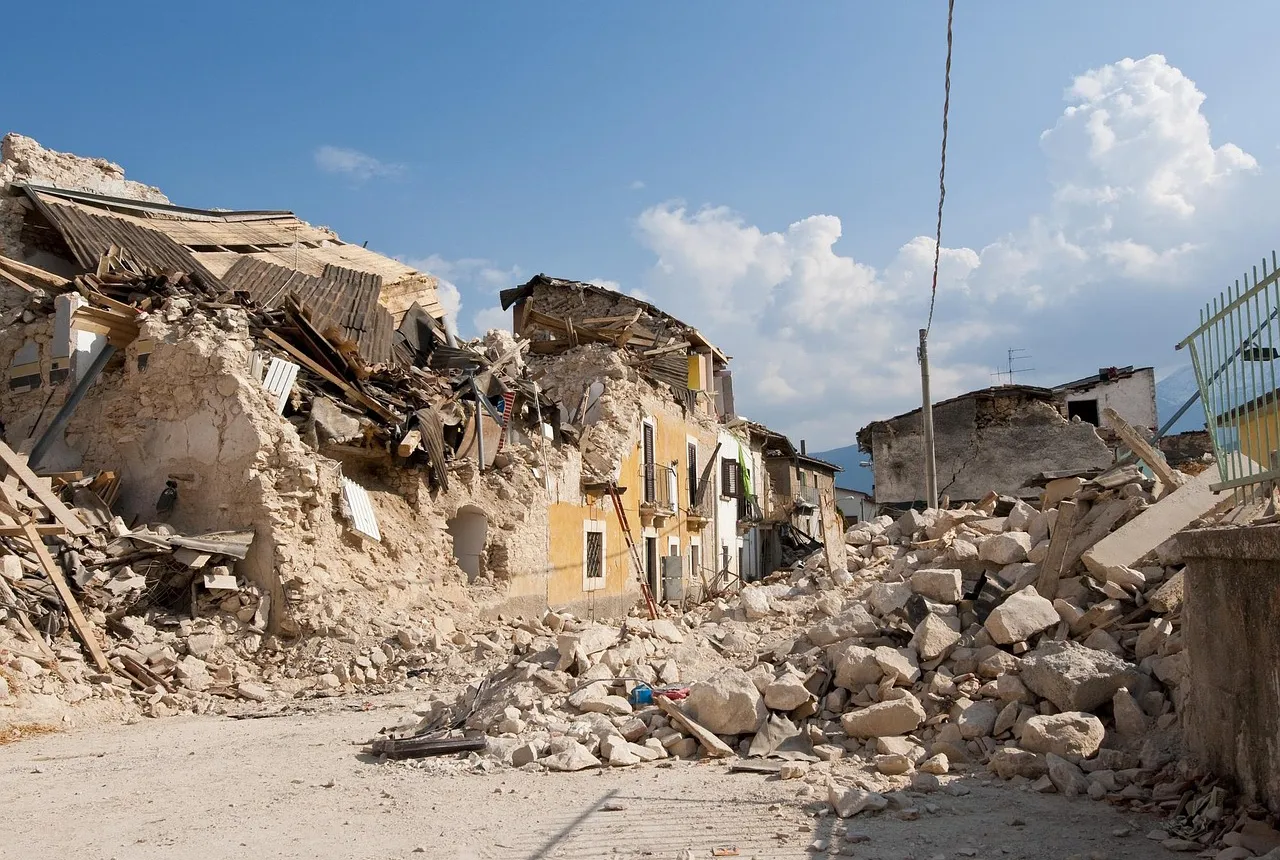
New research shows artificial intelligence earthquake tools forecast aftershock risk in seconds
25/11/2025
Researchers from BGS and the universities of Edinburgh and Padua created the forecasting tools, which were trained on real earthquakes around the world.
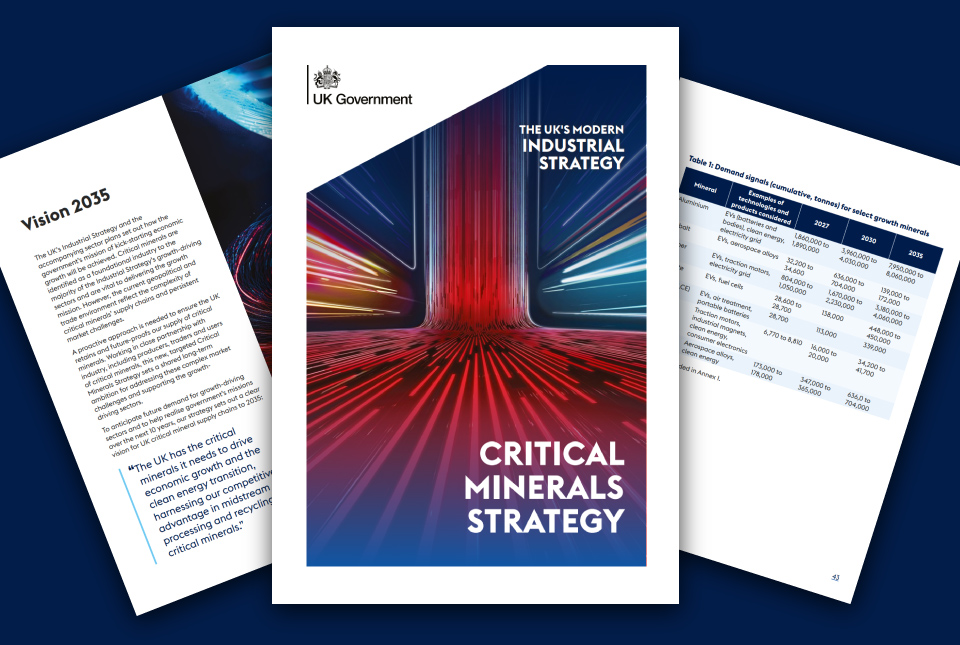
BGS welcomes publication of the UK Critical Minerals Strategy
23/11/2025
A clear strategic vision for the UK is crucial to secure the country’s long-term critical mineral supply chains and drive forward the Government’s economic growth agenda.



